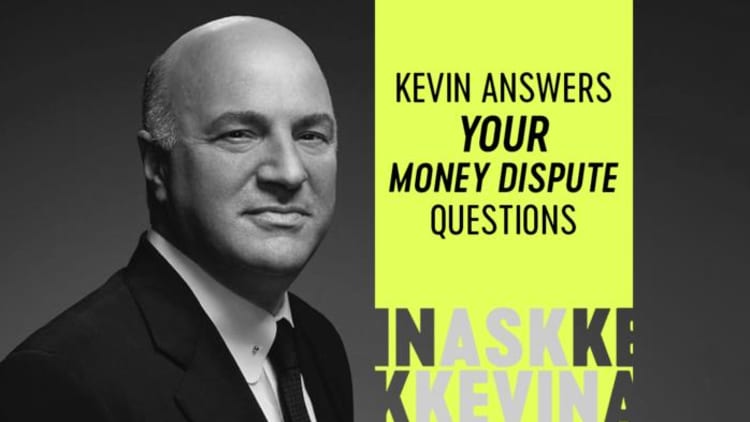With millions of Americans unemployed, and small business owners facing nearly unprecedented financial challenges amid the coronavirus pandemic, the debate in Congress is heating up over exactly what shape the next coronavirus stimulus package will take.
On Monday, Senate Majority Leader Mitch McConnell unveiled Republican Senators' coronavirus relief plan. Called the Health, Economic Assistance, Liability Protection and Schools (HEALS) Act, the $1 trillion bill proposes stimulus benefits such as a second $1,200 economic impact payment to Americans who qualify. The proposed bill would also replace the previous CARES Act's $600 enhanced federal unemployment insurance that expires this week for most Americans with payments capped at 70% of a worker's previous wages (capped at $500 per week), starting in October.
Independent contractors, gig workers and self-employed workers, like "solopreneurs," have also been able to collect the extra $600 weekly unemployment payments through the Pandemic Unemployment Assistance (PUA) program. However, while those workers will be able to continue receiving PUA benefits through the end of the year, the extra $600 weekly payment is also set to expire at the end of July.
The proposed HEALS Act would also put aside $190 billion to create another round of the Paycheck Protection Program loan program to provide financial assistance to struggling small businesses, as well as independent contractors and the self-employed. The government has already approved more than 5 million PPP loans, worth nearly $520 billion, through previous rounds of the small business loans program made available by the CARES Act.
Independent contractors and self-employed workers became eligible to apply for PPP loans in April to cover payroll and other expenses. (Self-employed workers are treated as employers with a single employee — aka, themselves.)

Small businesses with fewer than 300 employees that have seen their revenue fall by more than 50% as a result of the coronavirus pandemic would be eligible for another round of PPP loans as a result of the HEALS Act, even if they already received previous PPP money. The new bill sets aside an additional $25 billion for loans to be made to businesses with fewer than 10 employees.
The HEALS Act also proposes another $100 billion fund to provide long-term, low-interest (a 1% fixed interest rate) loans to seasonal businesses and businesses located in low-income communities.
As of now, the HEALS Act proposal would include a provision tying the eventual forgiveness of PPP loans to small businesses spending at least 60% of that money on payroll costs, with the other 40% allowed to go toward expenses like mortgage payments, rent, and utilities. Those forgiveness guidelines previously required businesses receiving PPP loan money to spend at least 75% of those funds on payroll, until a law change in June that came after some small business owners criticized the guidelines for being too restrictive. (In June, the government also began allowing partial forgiveness of PPP loans.)
The HEALS Act also proposes some tweaks to the PPP loan program aimed at simplifying the process for small business owners, namely a provision that would allow small businesses to choose "a preferred 8-week period" through the end of 2020 during which they would use the PPP loan money. That provision would allow small businesses to decide when the loan money would be best put to use in keeping their businesses open and their full staff on the payroll.
The HEALS Act also proposes a "safe and healthy workplace" tax credit, which would be a refundable payroll tax credit covering 50% of small businesses' expenses on coronavirus-related safety measures such as COVID-19 testing for workers, protective personal equipment, cleaning supplies and spending on "qualified workplace technology expenses," like contactless point-of-sale systems and contact tracing. Those refundable tax credits are also available to independent contractors, gig workers and self-employed workers, according to the bill.
Earlier rounds of PPP loans faced a difficult rollout, which included technical problems for banks using the small business relief program's web portal as well as delays in the PPP money actually reaching the small business owners in need of help. The program's initial $349 billion in funding also quickly ran out in April, before the federal government replenished the program with an additional $310 billion later that month. Many small business owners also complained about the fact that PPP loan forgiveness was (and continues to be, in the new bill) tied to using most of the loan money on payroll, which meant that many employers had to decide if they should continue paying workers even when their businesses were unable to remain open, either due to fewer customers or government restrictions on non-essential businesses.
In May, CNBC also reported that self-employed workers, especially, would face difficulties ensuring their PPP loans would be forgiven, because many of the allowable non-payroll expenses did not apply to most self-employed workers, such as rent or mortgage payments for office space.
Of course, the HEALS Act is still very much subject to ongoing negotiations between Senate Republicans and Democrats in both the Senate and House of Representatives. Those negotiations are likely to stretch into the beginning of August, as some Republican leaders have expressed concerns about allocating more money to boost the economy and Democratic lawmakers have already criticized the HEALS Act for not providing more funding for areas like food stamps and not extending the federal moratorium on evictions.
Democrats are also likely to push for increased unemployment benefits for out-of-work Americans. Speaker of the House Nancy Pelosi (D-Calif.), who led the House's passing of the $3 trillion coronavirus stimulus package called the HEROES Act in May, called the Republicans' proposal "pathetic," while Senate Minority Leader Chuck Schumer (D-N.Y.) called the proposal "unworkable."
Both Pelosi and Schumer are continuing negotiations with Republican leaders and White House officials on the stimulus plans this week.
CORRECTION: An earlier version of this article incorrectly stated that the extra $600 weekly unemployment payments for independent contractors, gig workers and self-employed workers would continue through December. While those workers will be able to continue receiving PUA benefits through the end of the year, the extra $600 weekly payment expires at the end of July.
Check out: The best credit cards of 2020 could earn you over $1,000 in 5 years
Don't miss:
Senate HEALS Act includes another $1,200 stimulus check—here's who would qualify


